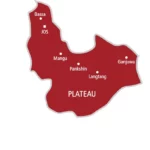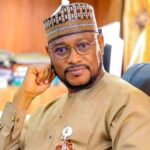This saying by the great Mandela is exactly what the responsibility of government is and should be about; it should be about improving and safeguarding lives and properties, through the provision of basic education, healthcare, uninterrupted power supply, good transport systems, among others. This is what the government should always strive to achieve, with ours being no exception. Objectively, we assume that the Nigerian government’s mandate is no different from the aforementioned. But why do we feel let down? Setting aside the obvious challenges we face in corruption and the misappropriation of public funds, the answer is simple. There is no way we can achieve sensible development when we spend heavily on maintaining our government rather than on these critical sectors.
Recently, the House of Representatives passed a bill for second reading that makes it mandatory for the executive to allocate 40 percent of the country’s budget to capital projects over the next decade. This is undoubtedly an improvement from what is on ground presently, where capital expenditure barely gets 30 percent of the annual budget. Unfortunately, the proposed 40 percent is still inadequate to improve the lives of Nigerians. No country in the world can see serious development when it allocates a little percentage of its budget to capital projects. In fact, despite welcoming the decision by the legislature to increase capital expenditure to 40 percent in the next ten years, we cannot afford to wait a decade before allocating more to capital projects. Our population is growing and in the next decade, the proposed 40 percent will still be insufficient. We have to act NOW by cutting the cost of running our government and subsequently diverting the savings to capital expenditure. It is paramount that we invest in our future rather than investing in the pockets and accounts of the people that are supposed to serve us.
The truth is that our elected officials at all tiers of government (federal, state and local) and both executive and legislative bodies are performing so badly that many doubt whether democracy is the solution to Nigeria’s problems; and rightly so. However, Alexander Woolcott answers that perfectly when he said, “I’m tired of hearing it said that democracy doesn’t work. Of course it doesn’t work. We are supposed to work it.”
It is the responsibility of the people given the task of leading us to make it work, to be transparent, to be fair, and to put the interest of the people they serve and represent before their personal interests. Sadly, that’s not the case in our country. Personal interest comes first before that of the people. By allocating more to capital expenditure, we can invest more in critical sectors that will better the lives of ordinary citizens. Budget discipline is equally as important because allocating more only to capital expenditure without discipline and proper management will not yield the required results. It will only lead to the execution of substandard projects.
Kano and Lagos are example of two states that have the right balance of not only allocating more to capital expenditure but also laudable fiscal discipline. This is evident as both states came first and second respectively on the list released by TIN, an affiliate of Transparency International against corruption as the two most budget disciplined and fiscal responsible states in Nigeria.
Based on this evidence, it is clear that performance and good leadership knows NO party and tribe as some people want us to believe. The part of the country you come from is not a determinant of whether an elected official will serve the electorates as he is elected to do whether in the executive or legislative branch of government. Gov. Kwankwaso of Kano State and Barrister Fashola of Lagos State are examples of governors that run a government of the people. It is safe to say that they are doing a pretty good job at it.
Kwankwaso was able to turn the fortune of his state around in just two years of governance, bringing back lost glories. In his second coming, Kano has witnessed gigantic strides which include; development of 3 new cities, expanding the main road leading into Kano City, opening 20 new institutes and another new state owned University, establishment of Kano Geographical Information System (KANGIS), construction of flyovers to ease traffic, building an Independent Power Plant (IPP) among others.
Likewise, Fashola did achieve a lot in his six years on the mantle of leading Lagos. His administration constructed drainages in Agege, Babs-Animashaun, Somolu, Lekki, Ijora, Ilasamaja and other parts of the state to reduce the severity of excess rainfall and reduce environmental effect, developed the Lagos State Geographical Information System (GIS), constructed the Lagos-Badagry Expressway into a 10-lane high way and created the Bus Rapid Transit (BRT) System. Fashola recently commissioned Nigeria’s first cable bridge funded by the state government and much more.
Both governors improved their Internal Generated Revenue (IGR) so as to have more funds available to better the lives of the people. Lagos internal generated revenue grew from N600 million to N20billion monthly while Kano State generates around N2 billion monthly, from an initial N400 million in 2011. Both Fashola and Kwankwaso are from different parties and tribes but both have the will, zeal and vision of taking their respective states to greater heights, trying to leave a lasting legacy and that is exactly what Nigeria needs now more than ever from our elected officials.
Imagine what is being witnessed in Lagos and Kano happening nationwide. If other governors will perform at the same level, the kind of development and transformation our country will witness in a short period will be unimaginable.
In conclusion, Nigerians should be reminded that we have an obligation to demand for our rights through peaceful and constructive means. Criticism should be constructive and should give possible solutions or recommendations to our leaders on way to move our country forward and as achieve a more prosperous and better Nigeria. Government should not only be able to accommodate the views of the people, but should also be able to use the suggestions of the people if it offers better solutions to our challenges. Our leaders should stop regarding criticism as personal attacks or vendettas. Rather, they should encourage every Nigerian to tender his/her contribution in any way possible to make our country better.
Aliyu wrote in from Dubai, United Arab Emirates. [email protected]
Development: A case of fiscal and personal discipline
This saying by the great Mandela is exactly what the responsibility of government is and should be about; it should be about improving and safeguarding…



